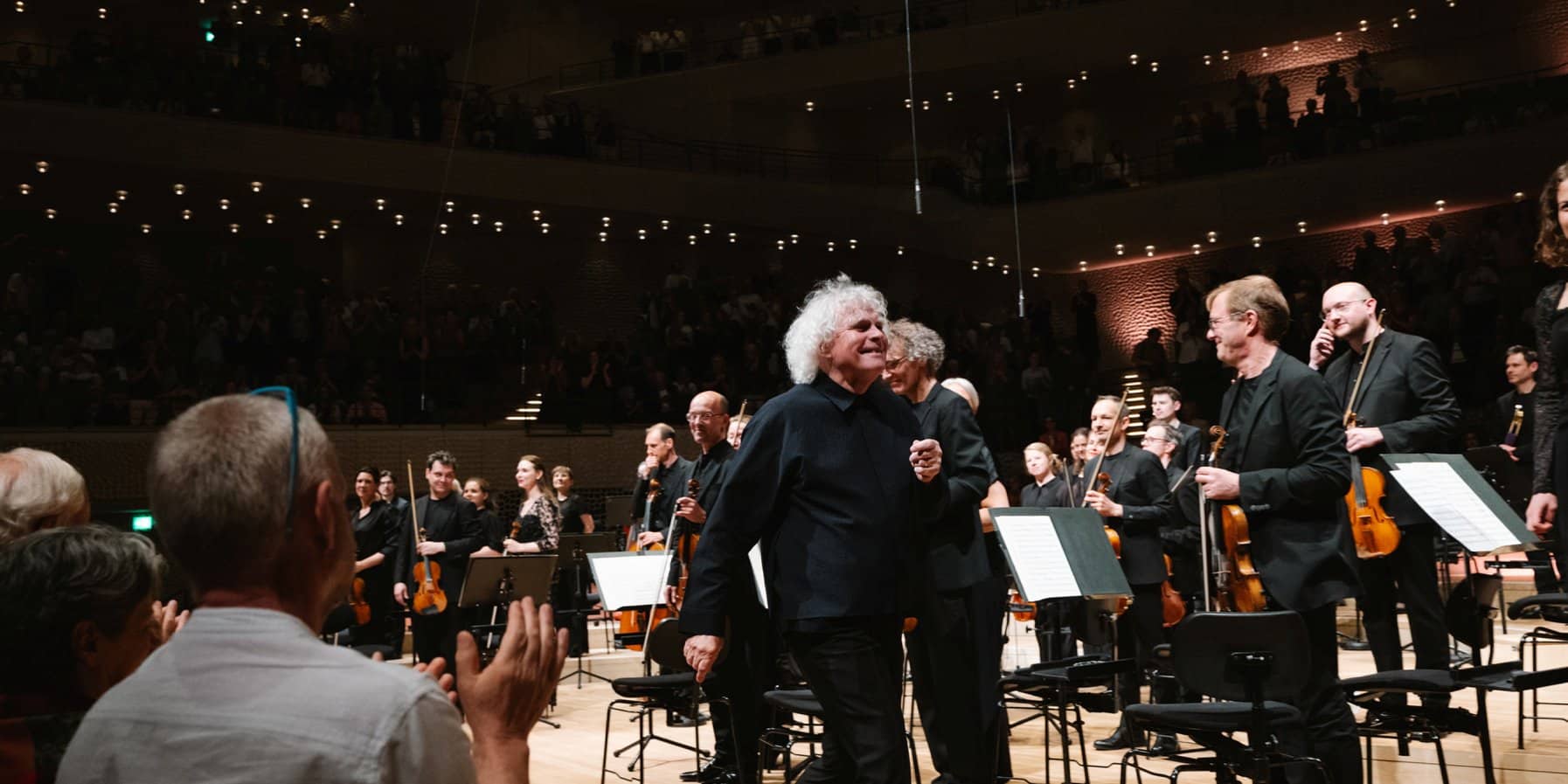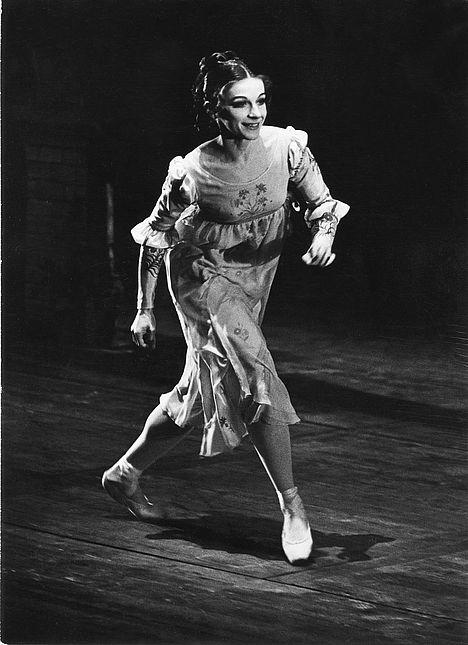Mother weeps as Hatikvah is played on Wagner’s piano
mainFrom the director Yuval Sharon in Bayreuth:
Marc Lowenstein playing Hatikvah on Richard Wagner’s piano in Bayreuth, an event that brings my mom to tears. Talk about repair on the highest symbolic level!






Marc butchered that beautiful anthem; wrong notes, wrong harmonies, which may explain the tears …
Quite. Yet he looks well pleased with himself. Anyone who only THINKS he knows the melody and harmonies of Hatikvah (which are specific and to an extent adventurous) needs to stop showing off and stay away from pianos. Especially Wagner’s. He did enough damage to Jewish musicians (apart from conductor Herman Levi) as it is.
There are still raging many misundertsandings about W’s antisemitism. His antisemitism was a cultural critique clothed in racist terms – since such terms were bon ton in the 19th century. His critique concerned the negative elements of modernity, and his mistake was to think that these elements were ethnically defined, which they are, of course, not. So, suggesting that W has been instrumental in creating the holocaust is as crazy as accusing Marx of being responsible for Stalin’s or Mao’s mass murders.
In the name of divine love, early (and later) Christians have committed prosecutions with an enthusiasm nothing short of Stalin’s or Hitler’s.
The symbolical gesture of this video implies a simple link which is not really there, and is therefore intellectually dishonest.
Quite some squirming to absolve Wagner of antisemitism. We know it was endemic in Europe. Chopin called some little peasant Jewish boys who pushed their noses against his windows during a salon recital “pigs”. When very ill he complained, “my Jew doctor hasn’t been to see me in four days.”
Wagner’s antisemitism was not to do with lack of modernity in other men’s music, nor its perceived inferiority. It was undisguised racial bigotry against the “outsider”. In his early days he admired Meyerbeer and Halevy. When he realised they were not only Jewish but serious operatic rivals, particularly in Paris, he jumped on the bandwagon of racial stereotyping.
His antagonism lay in the ancient tradition of Christian blood libels, seen in England way back in 1255:
https://en.wikipedia.org/wiki/Little_Saint_Hugh_of_Lincoln
His obsession with blood is paramount in Parsifal. It even begins with Amfortas bleeding onstage. Then there is a sacred goblet of it, about which many words and notes are spent. Blood sacredness is the spine of Parsifal and no other composer so wallowed in it.
If we bring the Third Reich into it (yes yes, Wagner died 50 years before, as if that’s an excuse), the SS arrested you for having Jewish blood and they burrowed into your family tree. Your parents, your husband’s parents, the grandparents and great grandparents on both sides were all doomed to extinction. That’s 10 victims.This was the punishment for having the wrong blood in your veins.
Cosima Wagner egged her husband on. Her diaries show her blind support for his bizarre opinions. She could never understand why, in the run-up before Herman Levi conducted the Parsifal premiere, her pleas for him to become a Christian beforehand fell on deaf ears. So, you may ask, why did Wagner give him the job? Because an egocentric bigot has no qualms about associating himself with someone whose religion he despises so long as it benefits his own purpose. Levi was an outstanding conductor.
The blood purity obsession went along with his outspoken derision of Jewish talent. He said, “Jews are the flies in the wounds on a horse.”
Parasites, blood and absence of a homeland other than Germany which the wandering Jew could call his own, were faults he simply could not stomach.
The next time this topic comes up on SD, think whether this flawed man’s undisputed genius has been unfairly blighted by his behaviour. Would he be allowed to run an opera house today? No doubt. And he’d hire Daniel Barenboim as his Jewish conductor.
Maybe this will help:
http://johnborstlap.com/was-wagner-a-bad-person/
It’s more complicated than may initially seem.
Amateur night – such bad playing !
Tune for anthem ‘s from B.Smetana “Moldau”. “Nation that doesn’t have his own voice you can hear in their anthem”-Erjy Letz-Polish writer
The origins of Hatikva’s tune can be traced back to La Mantovana, a popular 16th century Italian song.
https://en.wikipedia.org/wiki/La_Mantovana
https://www.youtube.com/watch?v=gQDjPqaZI1g
The tune can be found in folksongs of several European countries, and in some classical works such as Smetana’s Vltava.
According to wikipedia, Samuel Cohen, the composer of Hatikvah, “recalled many years later that he had hummed Hatikvah based on the melody from the song he had heard in Romania, Carul cu boi [The Ox-Driven Cart].”
https://www.youtube.com/watch?v=adTjy-TIW_Q
Actually both Hatikvah and Vltava (Die Moldau, if you prefer the German) borrowed the melody from older sources that were common in Italy and Eastern Europe:
https://en.m.wikipedia.org/wiki/Hatikvah. Scroll down to the section labeled “Music.”
The tune, originally called La Mantovana, appears to originate in 16th-century Italy. It is recorded as far afield as Spain, Scotland, Flanders, Bohemia, Poland, Ukraine, Romania, and Slovenia. Samuel Cohen, the Moldavian Jewish composer of Hatikvah, derived the melody from a Romanian source, not Czech, and certainly not from Smetana’s Vltava. Nor was Smetana even the first composer to use this melody: it appears in earlier works by Chopin and Saint-Saëns.
If you consider the popularity of this tune in central, eastern, and southeastern regions of Europe which had large Jewish populations during the 19th century it is hardly surprising that it was adopted as a Zionist anthem. Indeed, had this tune not become the Zionist anthem, I suppose that some other folk song popular in the space of the Austro-Hungarian and Russian empires probably would have done instead.
By the way, who is Erjy Letz? Do you mean Stanisław Jerzy Lec?
Yes, thank you for right spelling of this brilliant humorist. Official, tune was used from B.Smetana. I’m Moldavian Jew and never knew as our folk tune. Recently I heard street musician group played HaTikva and Hava Nagila at Gare du Nord metro station in Paris. No anti-Semitic protest, no tears-people walk by.
Samuel Cohen couldn’t be Moldavian-because he wrote in 19 century in Bessarabia. Moldovian republic was established 1940, now country of Moldova and Transdnestria.
Once I was warn by friend not to get up at concert when B.Smetana “Moldau”‘ll be played. Ha-ha!
The melody also appears in one of Mozart’s Variations on Ah vous dirai-je maman (Twinkle twinkle little star).
It is a universal theme which can also be found in nursery rhymes. E.g. “I had a little nut tree” played in the minor key.
Indeed, the Mantona tune has a striking similarity to a charming Greek children’s song about a donkey.
https://www.youtube.com/watch?time_continue=2&v=9Je3xrjAYdc
I think you should all get a damn education, no?
I think someone who claims to be a composer, yet fails to play a very simple melody and its harmonization from memory, should get a damn education?
I don’t know why there’s quite some hostility being shown here. This wasn’t a concert performance. It’s just a home movie of somebody playing a few notes on a piano.
Not the right place to express revenge
In the old world order, when you sucked at something, performed embarrassingly badly, you were hiding it in shame.
In the new world order, you post it on the internet.
Very unfocused rendition , I agree.
Oy such a schande on the Green Hill….a gay Jew plays a Jewish melody on the piano of one of the greatest anti-Semites who ever composed an opera. Frankly, it should have been Daniel Barenboim at the piano.
There is a photo of Leonard Bernstein playing a few bars of Wagner on this piano. I doubt he would ever have dreamed of playing Hatikvah. He did conduct some Wagner at one period but his heart wasn’t in it.